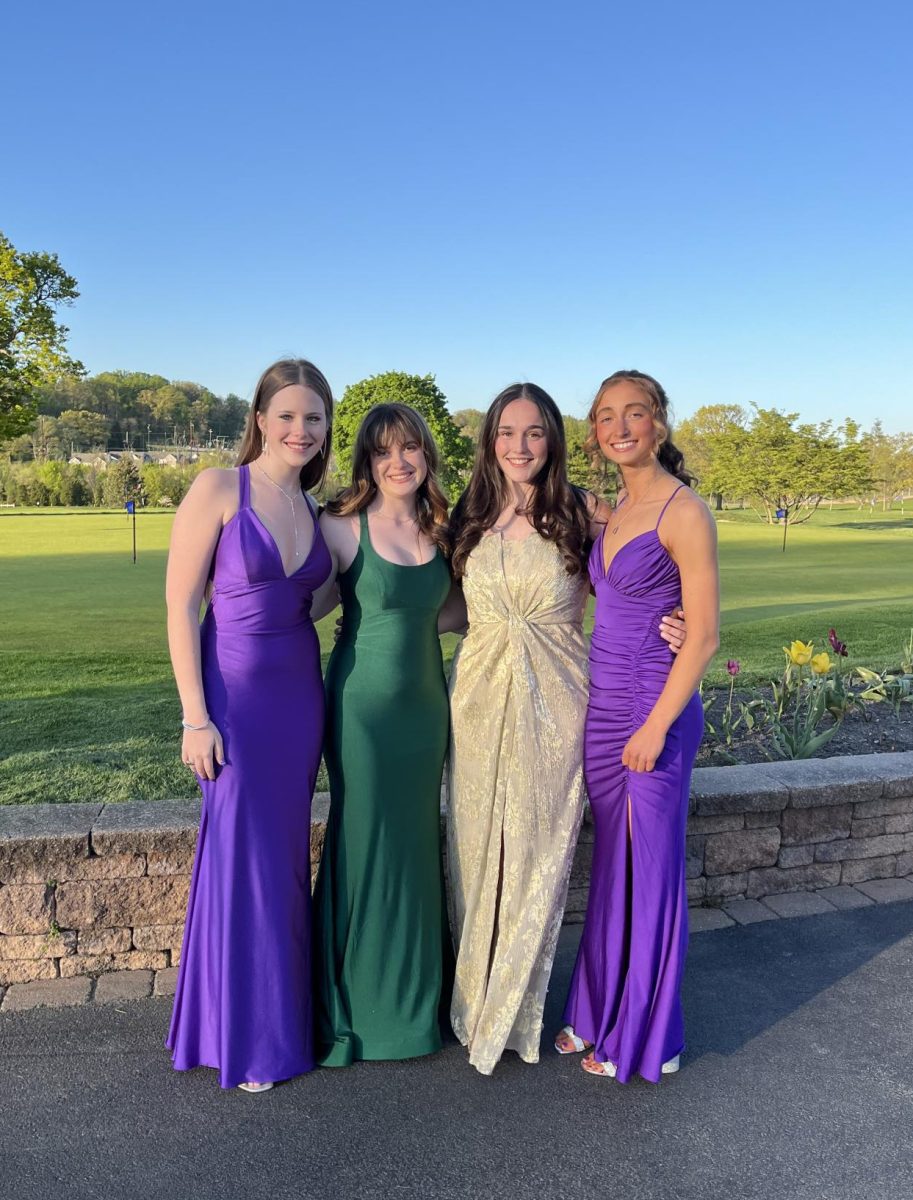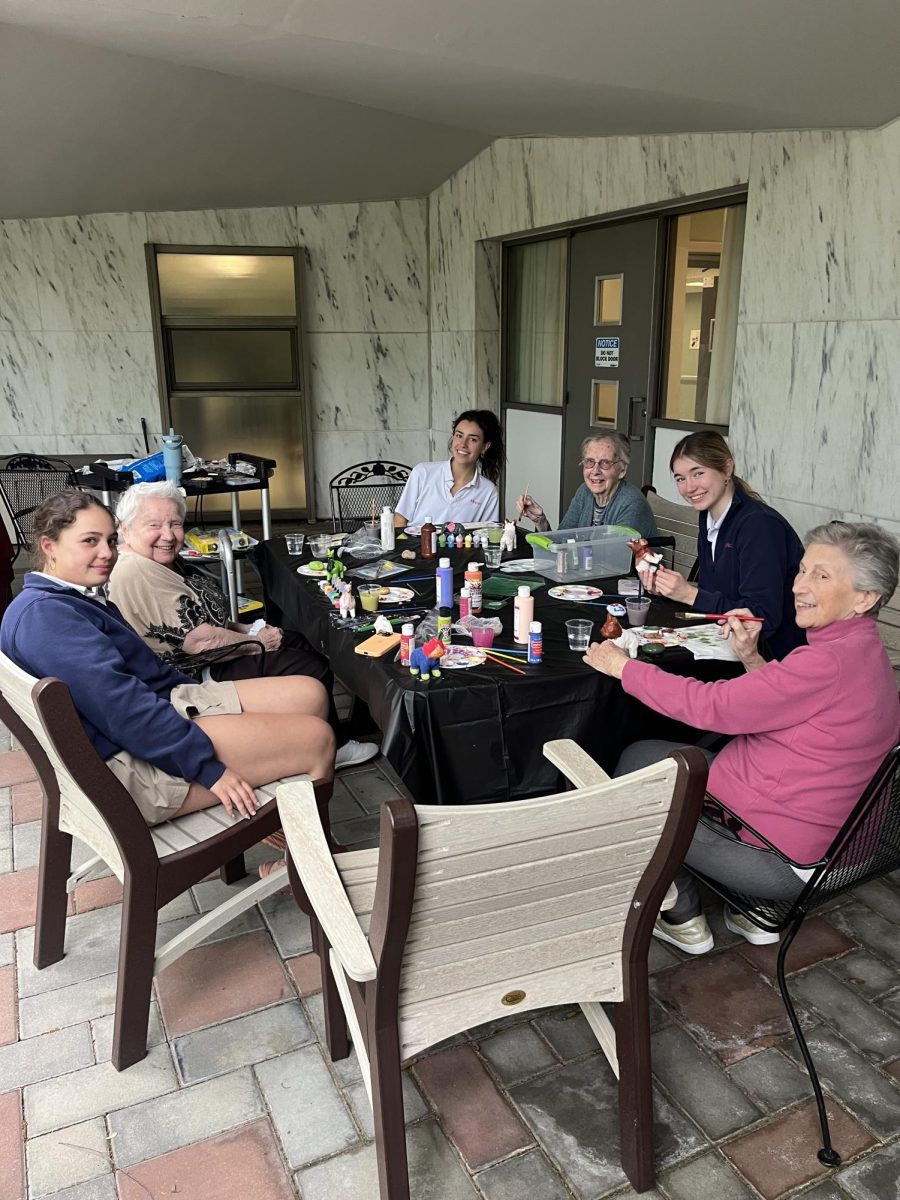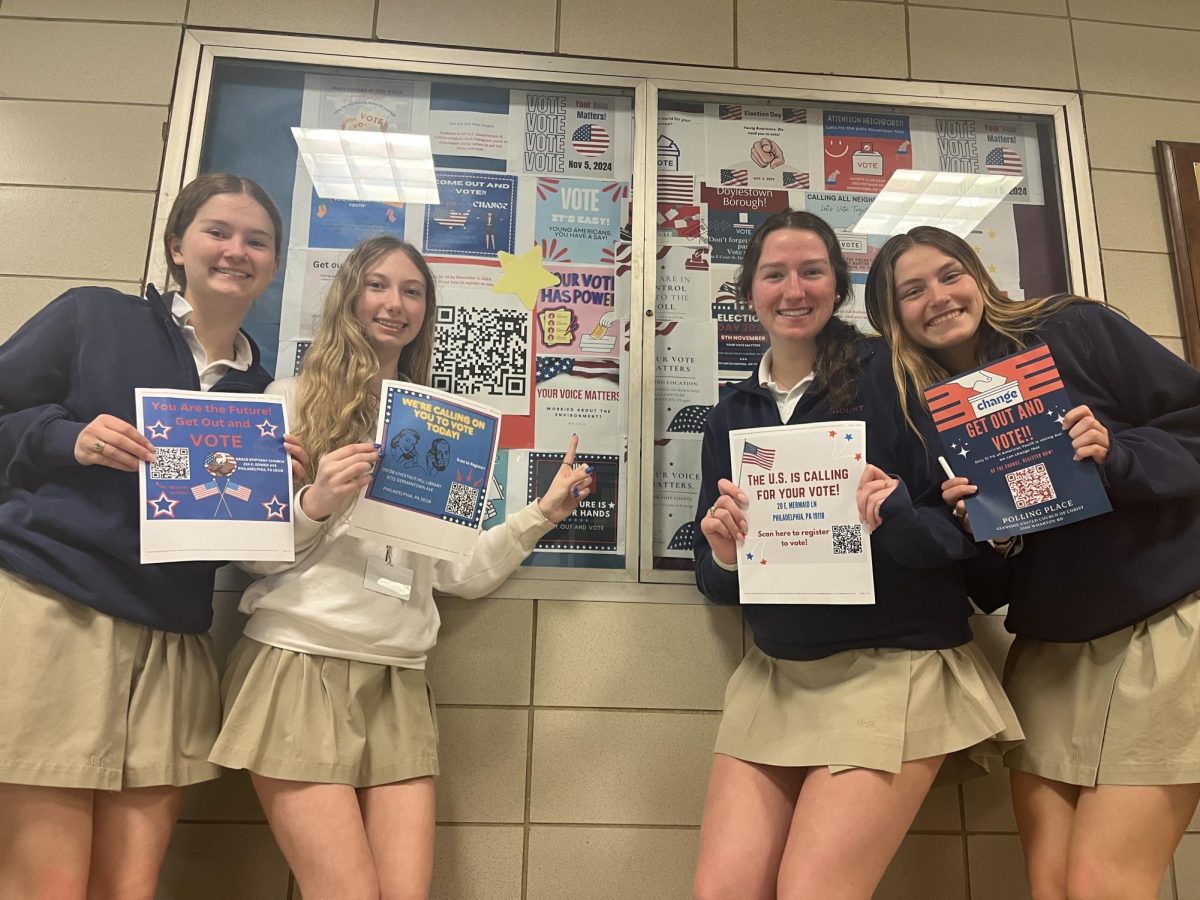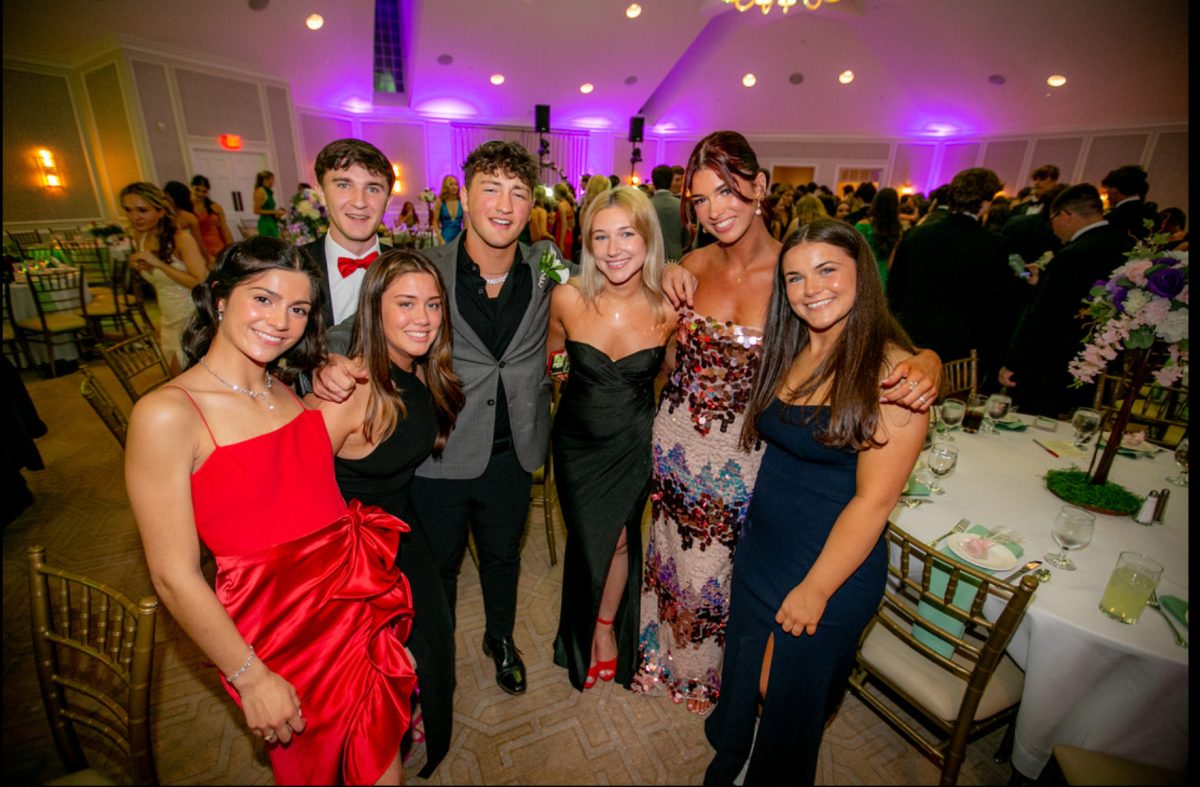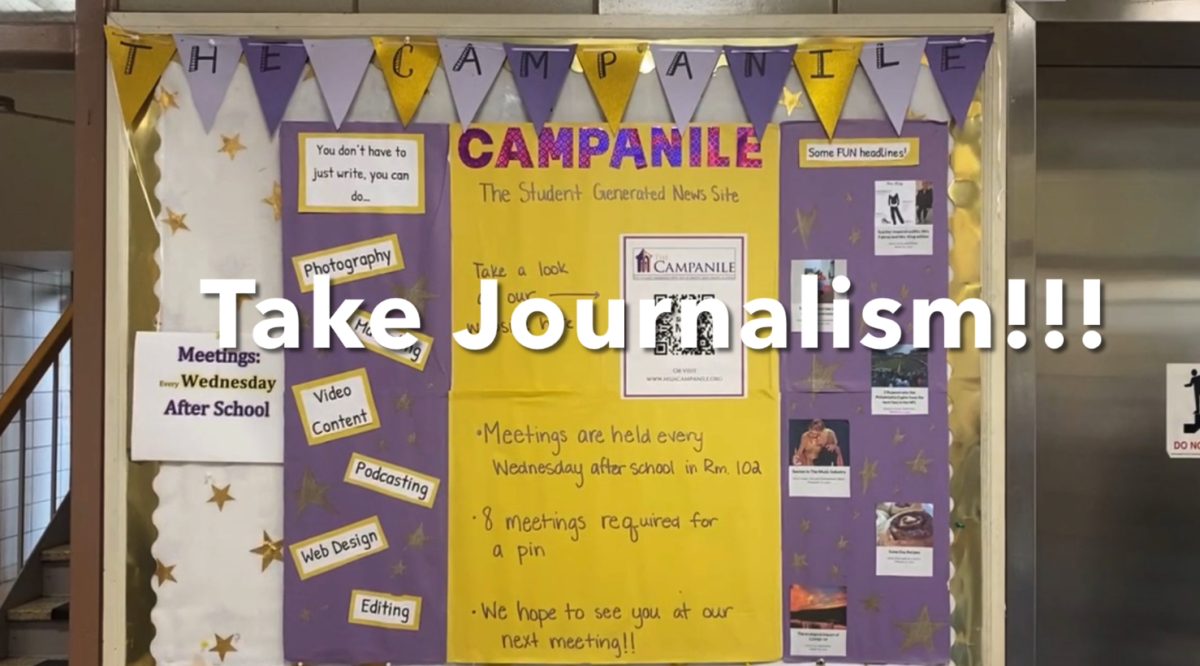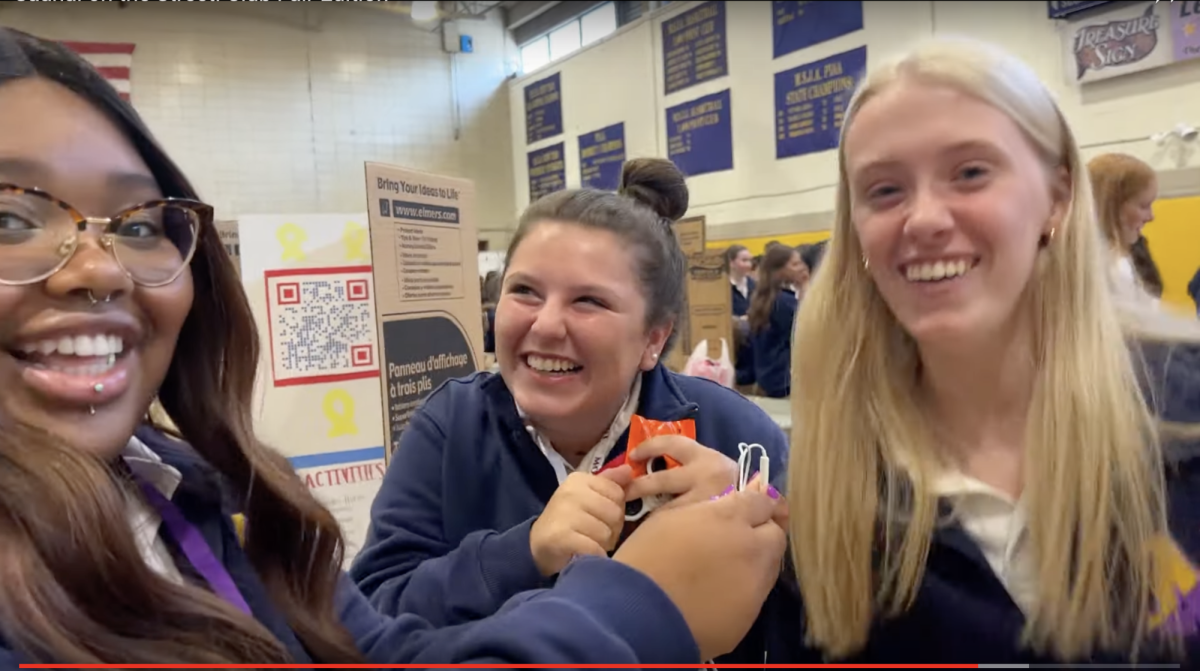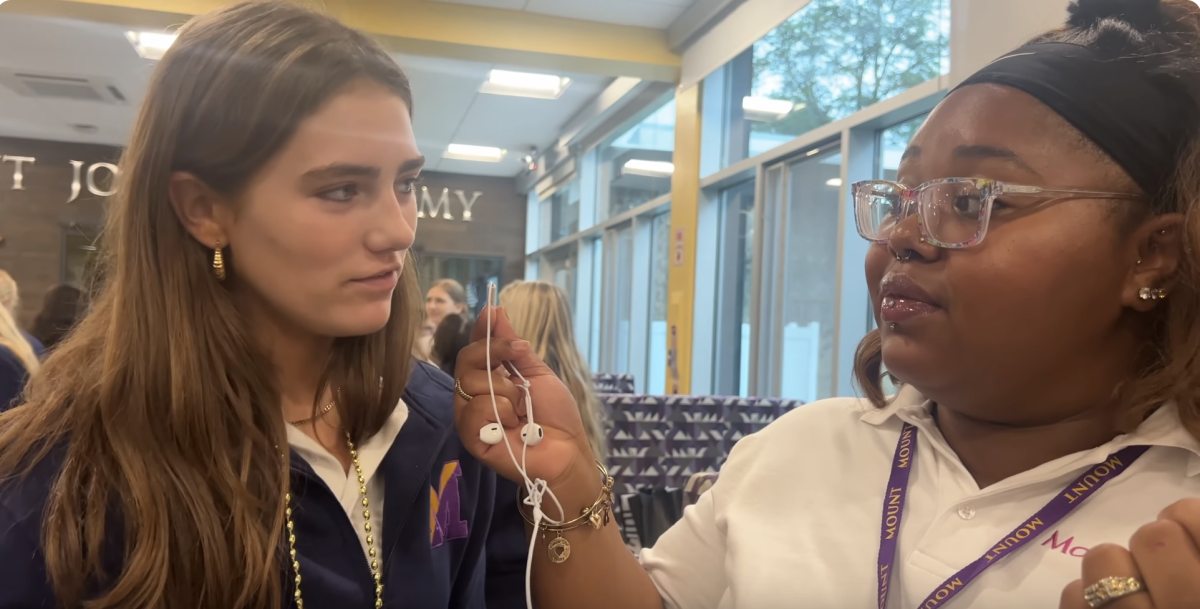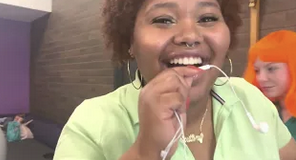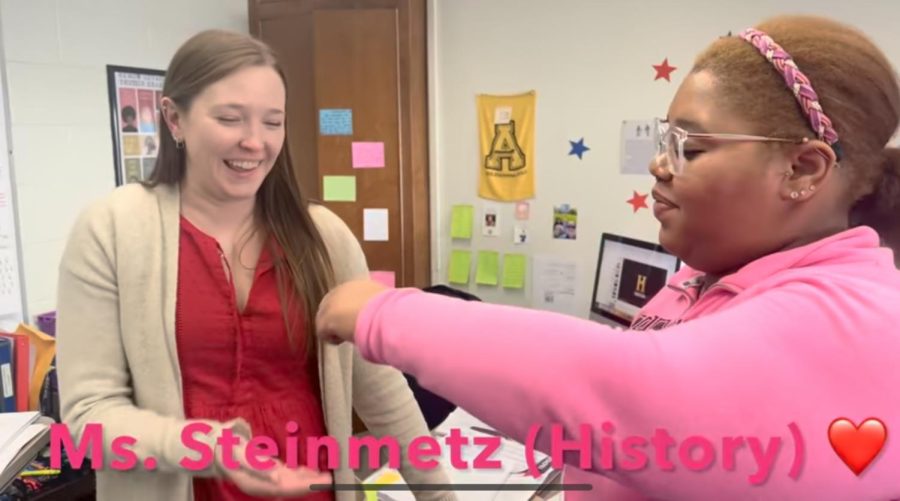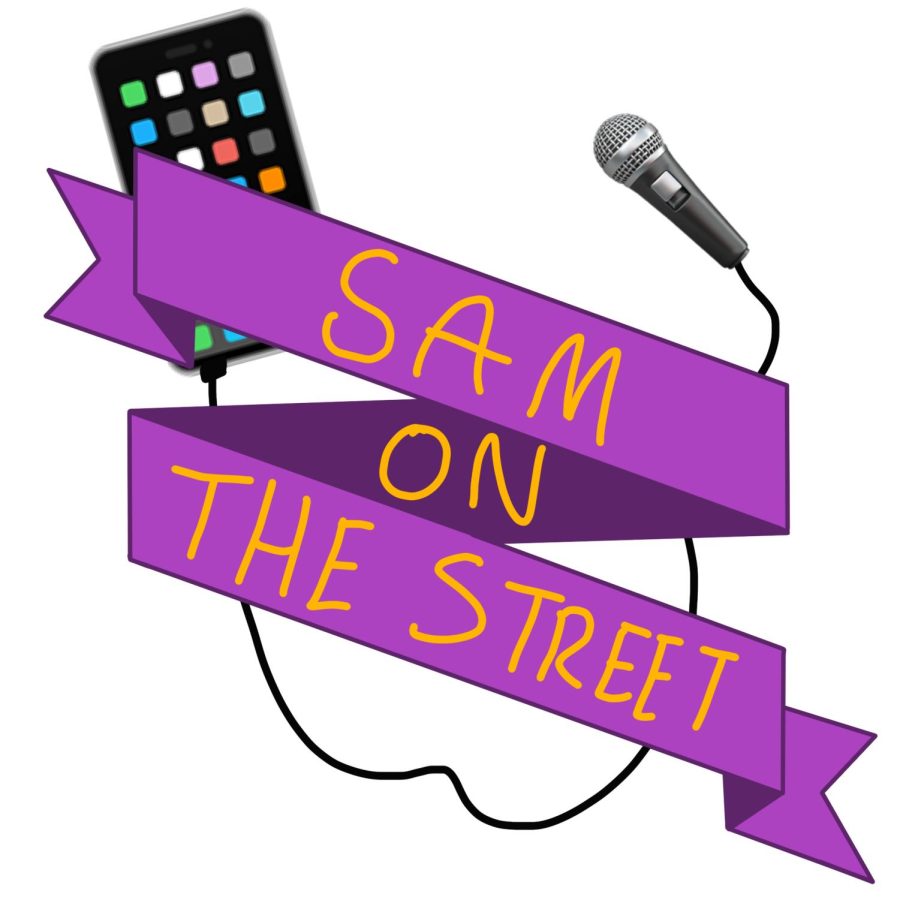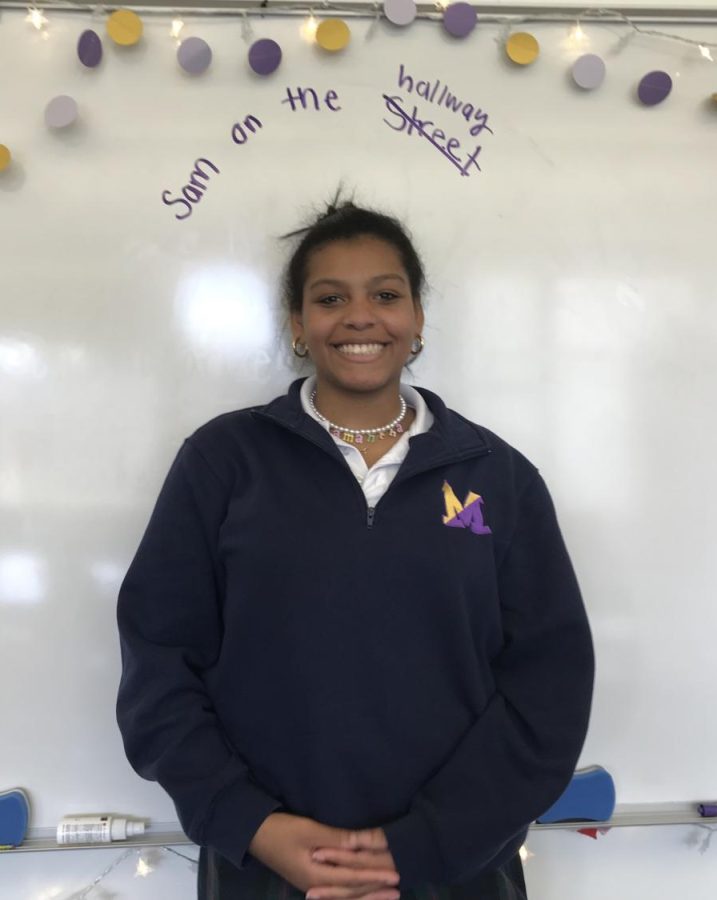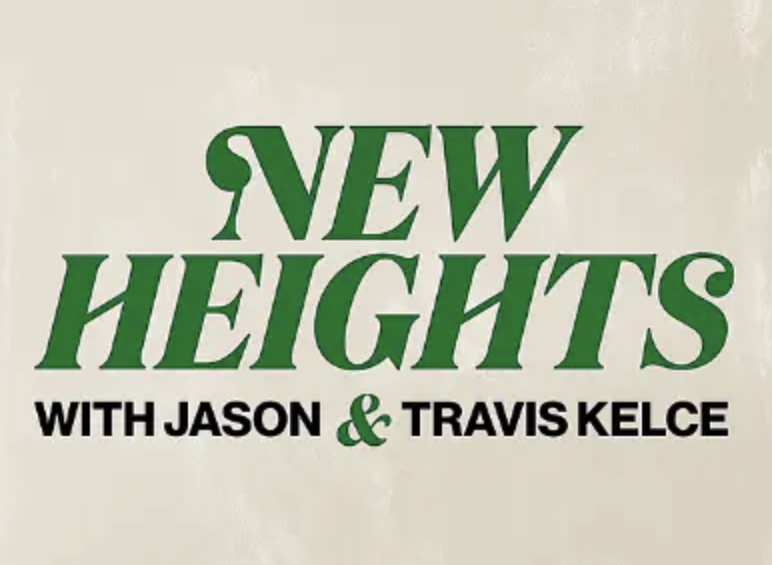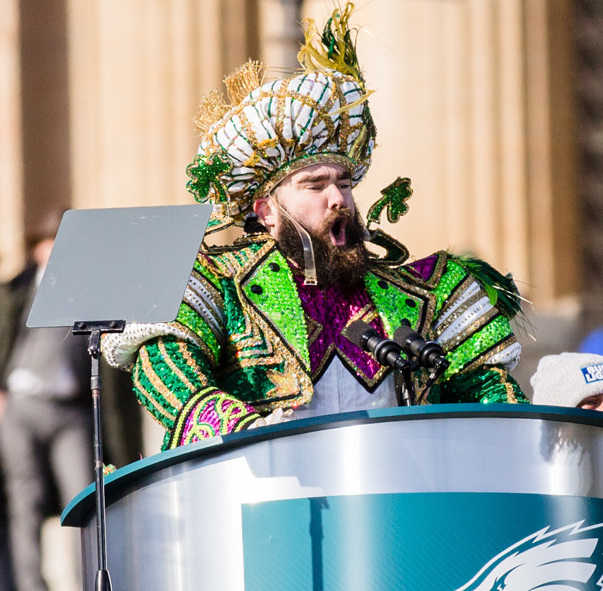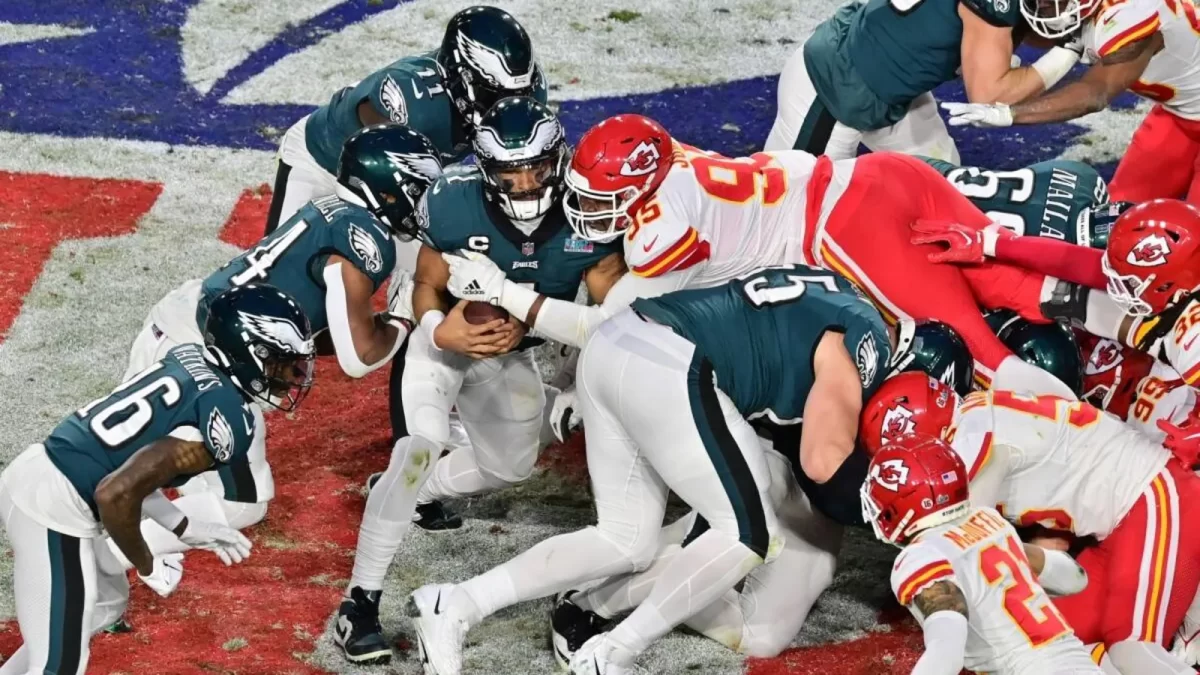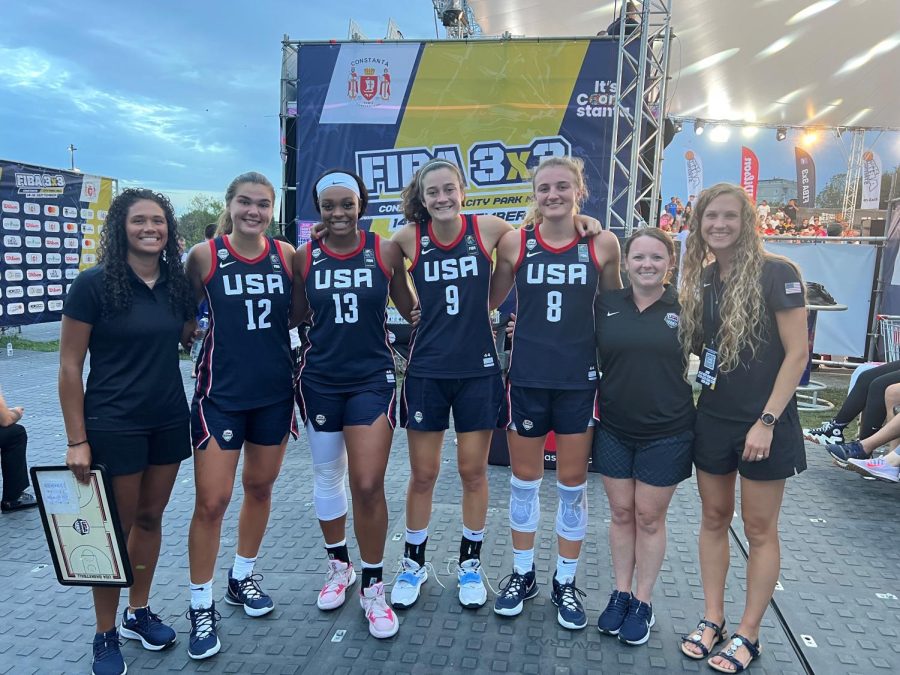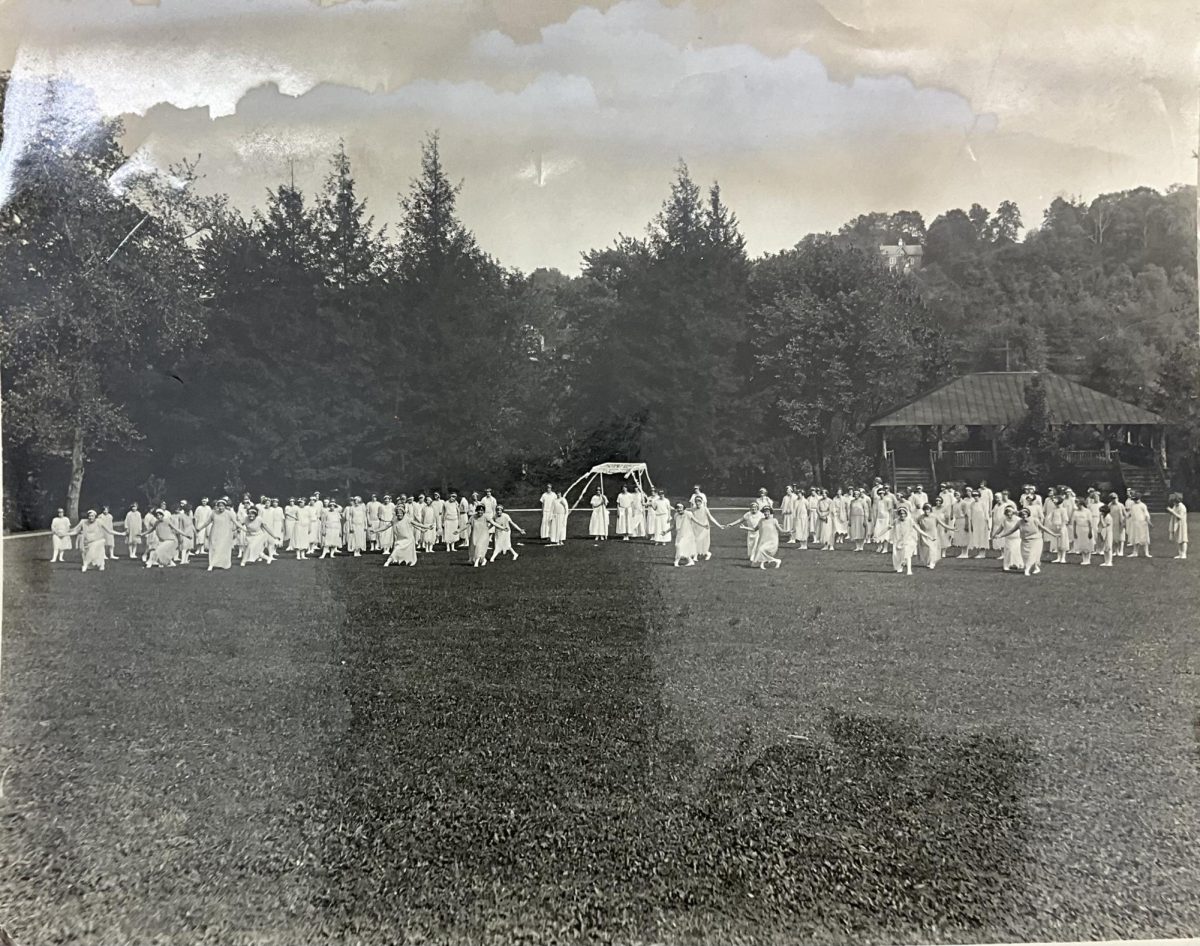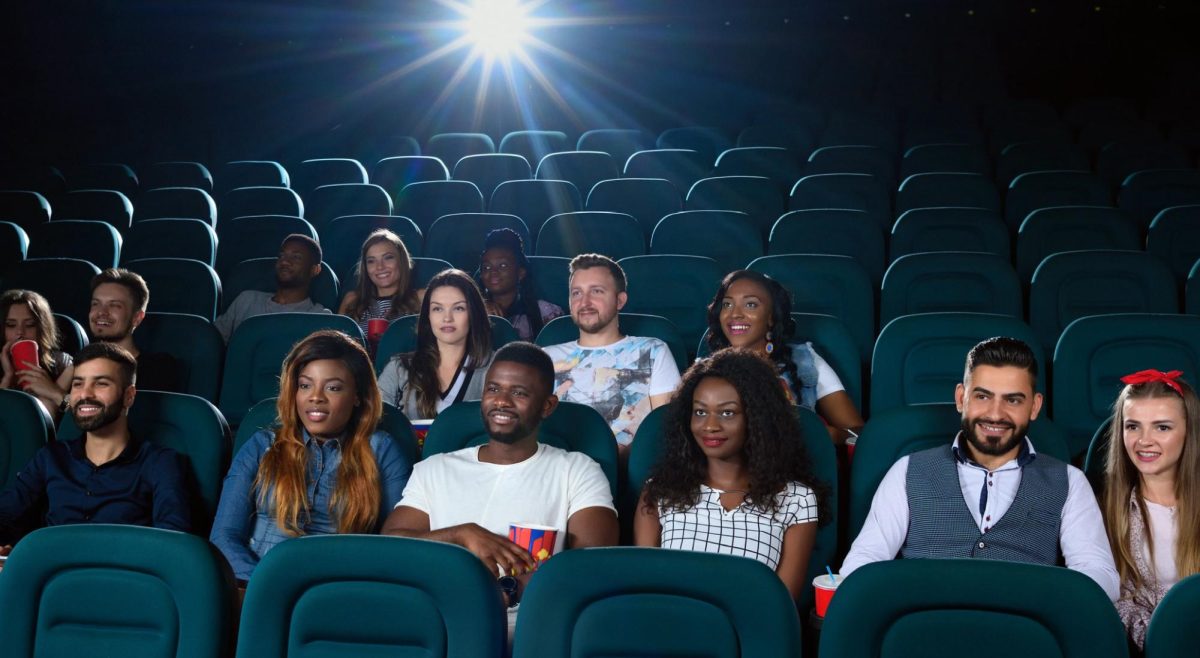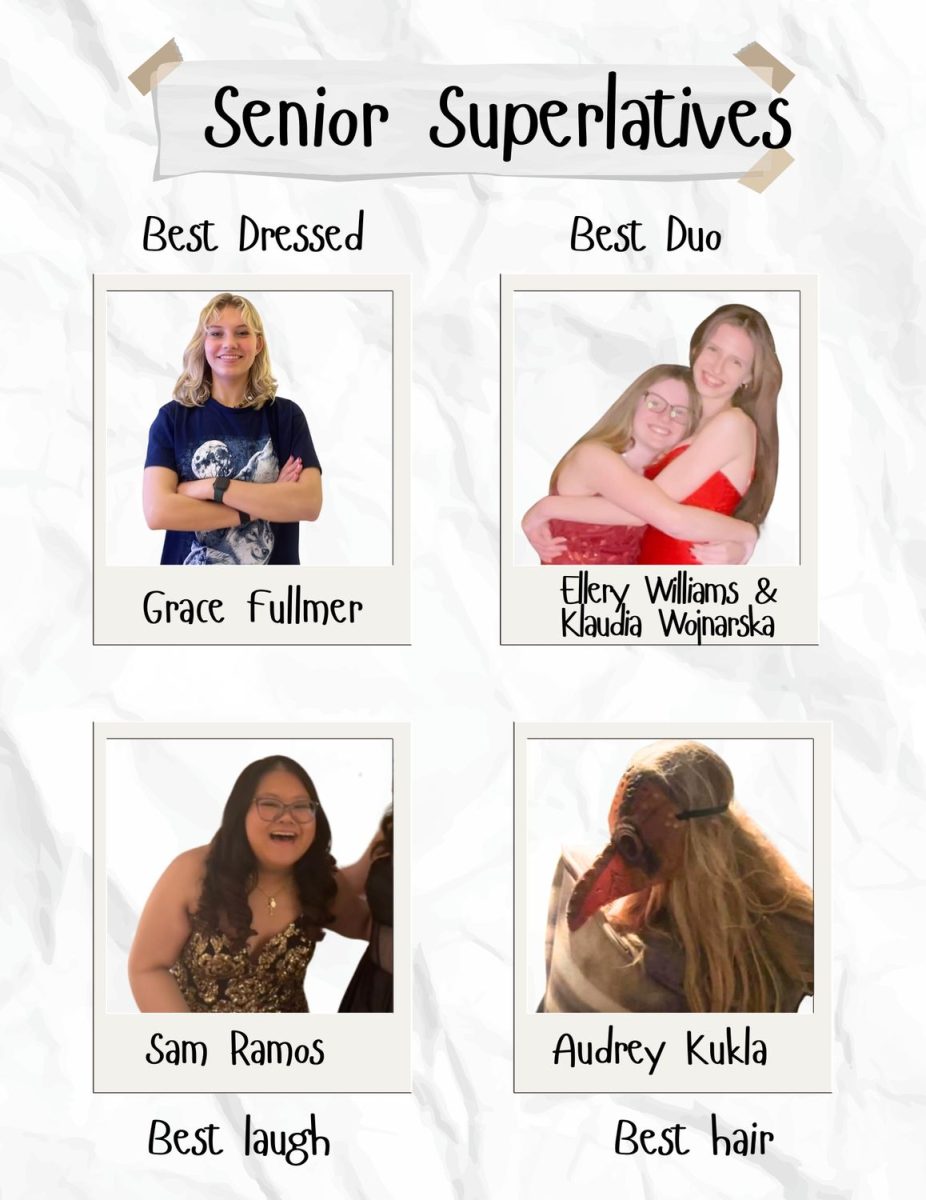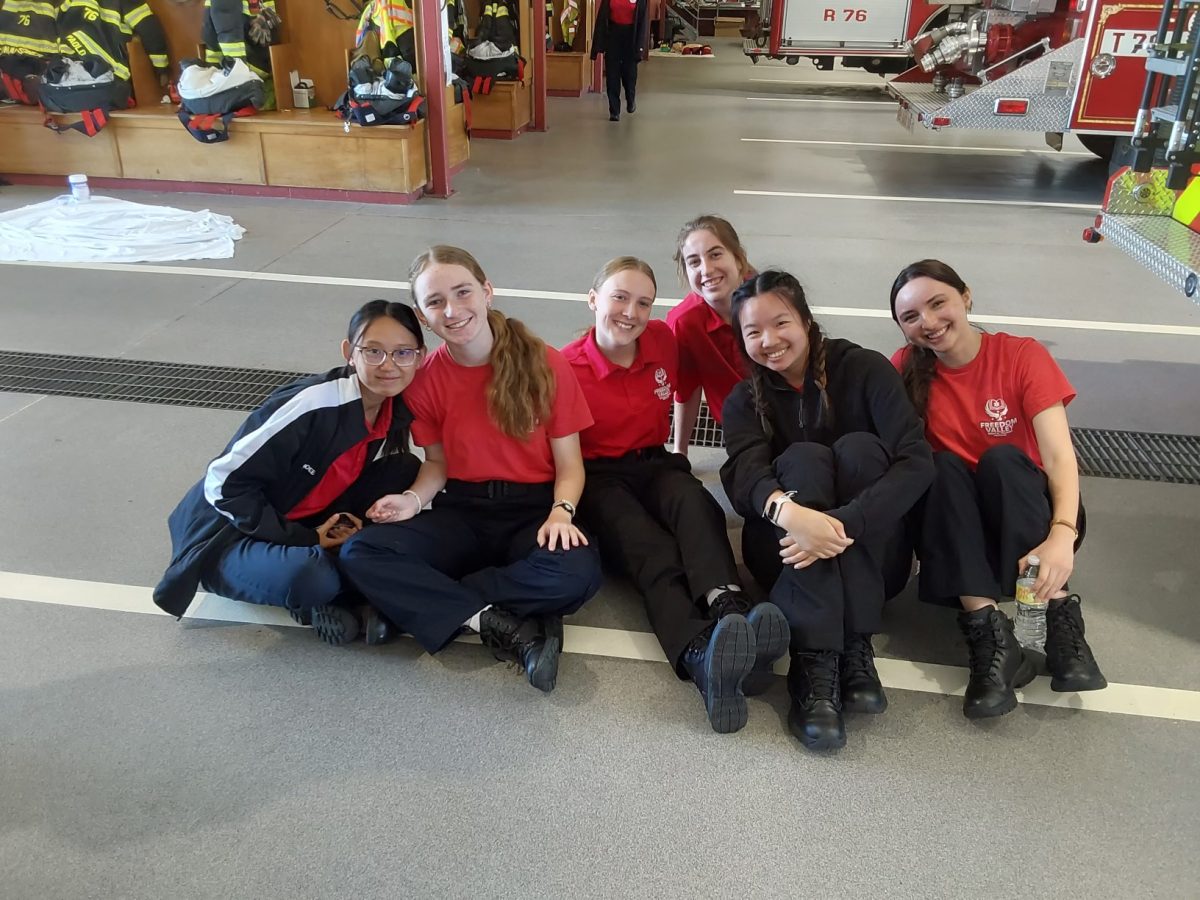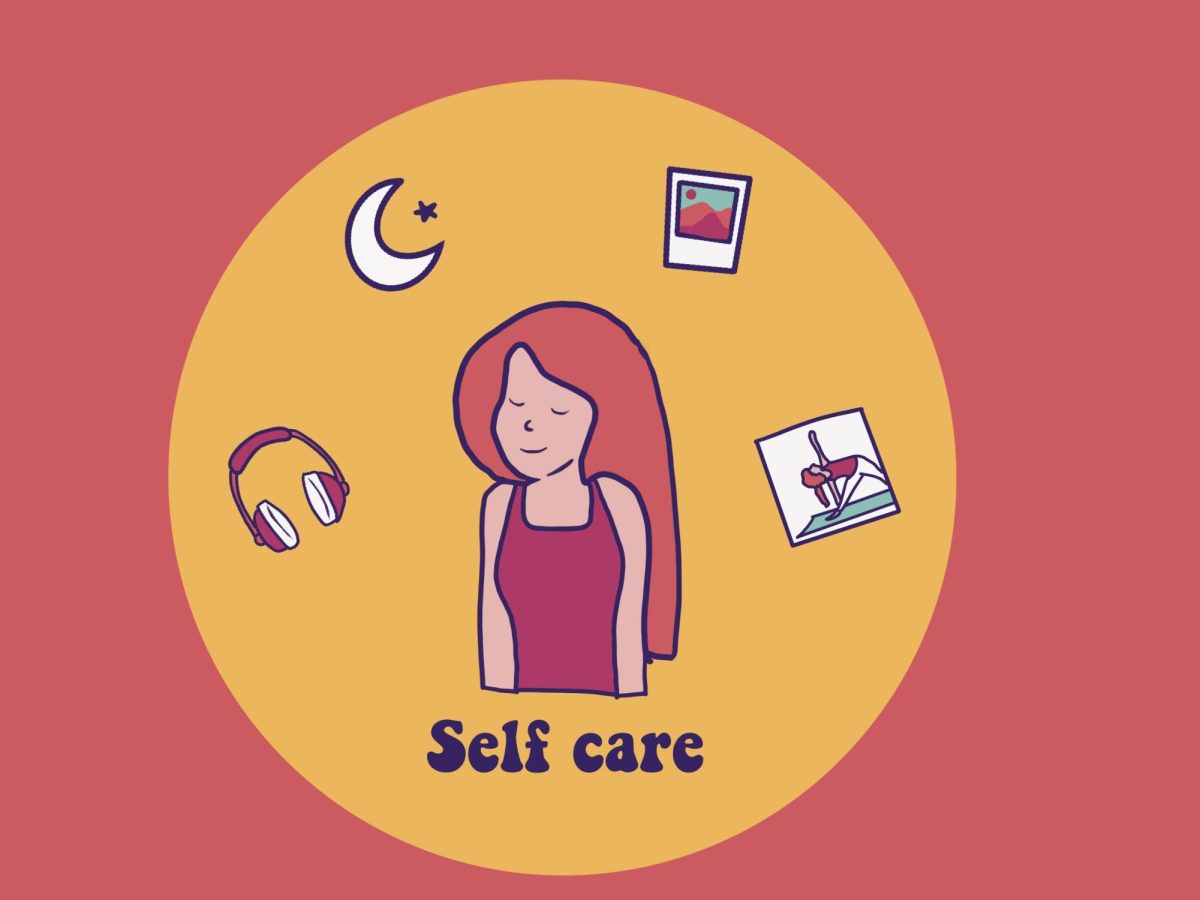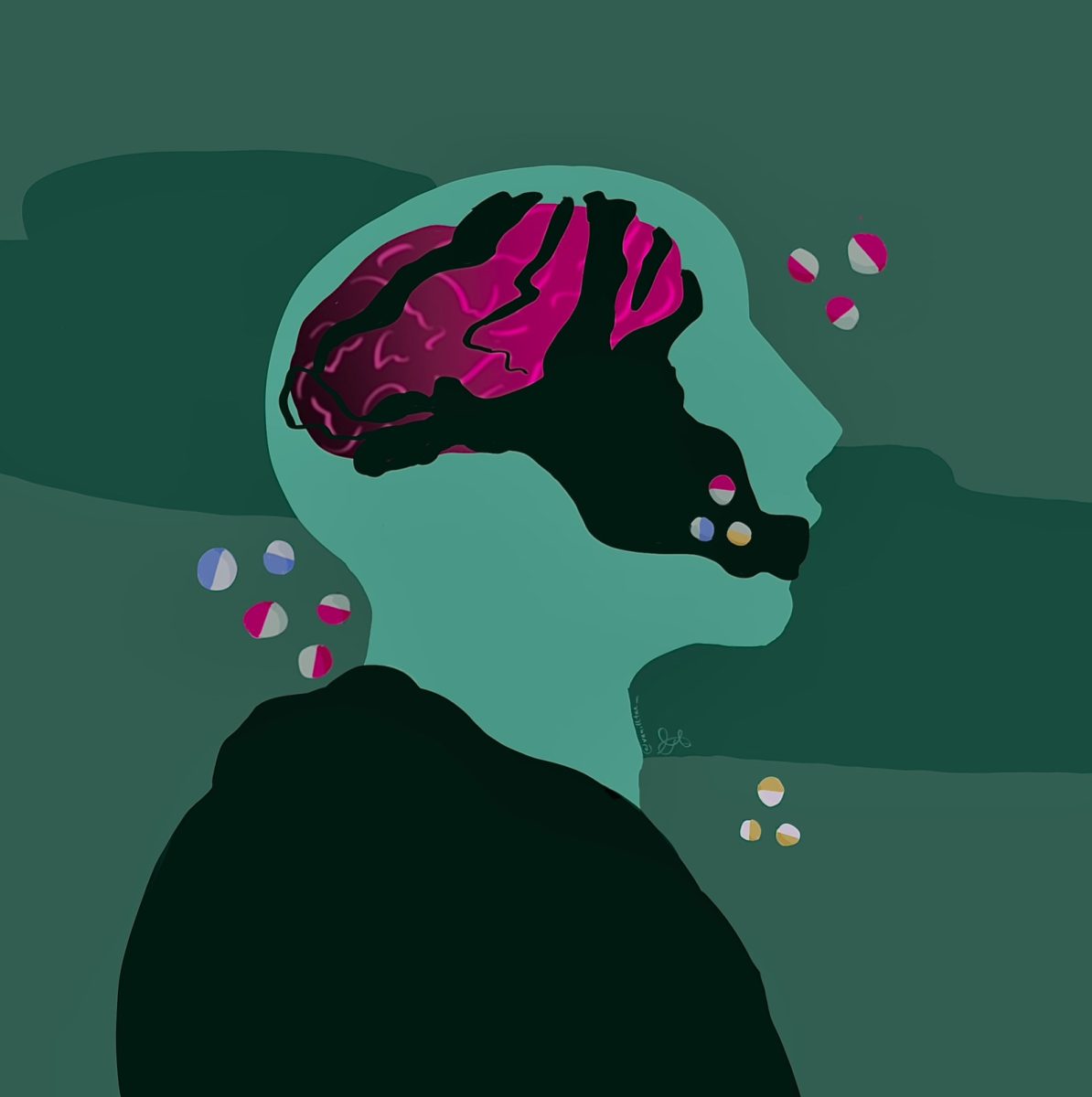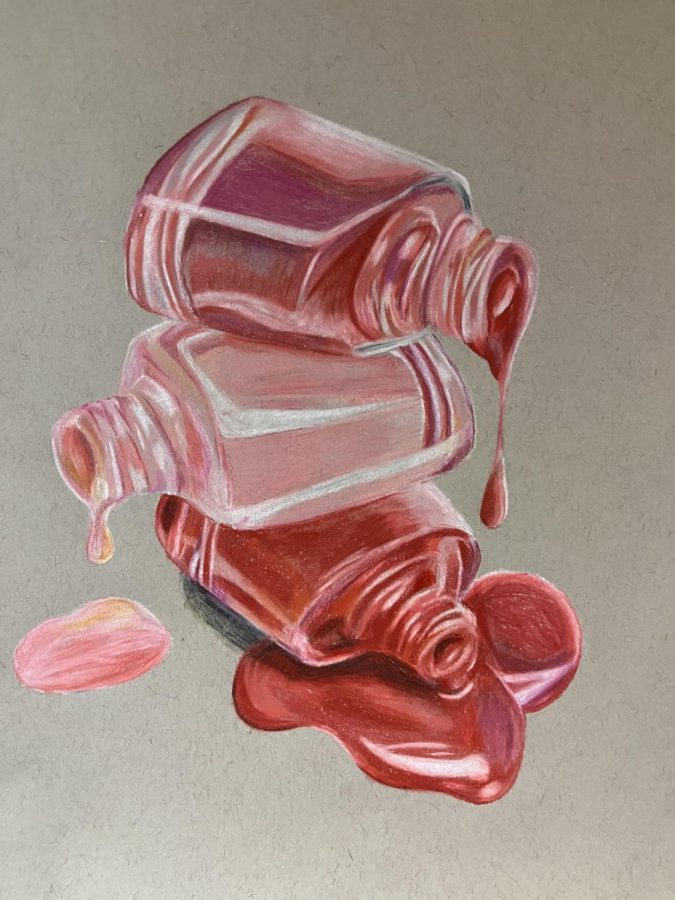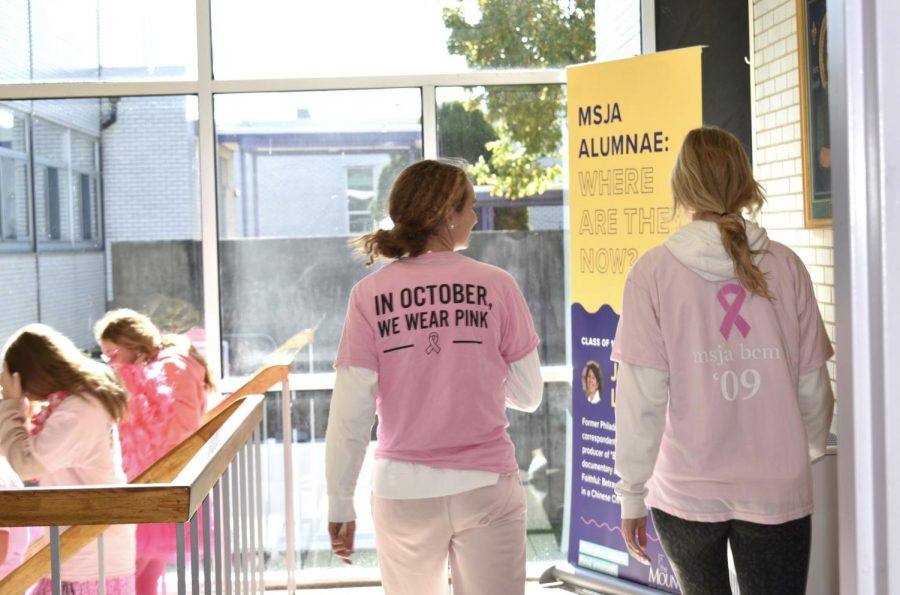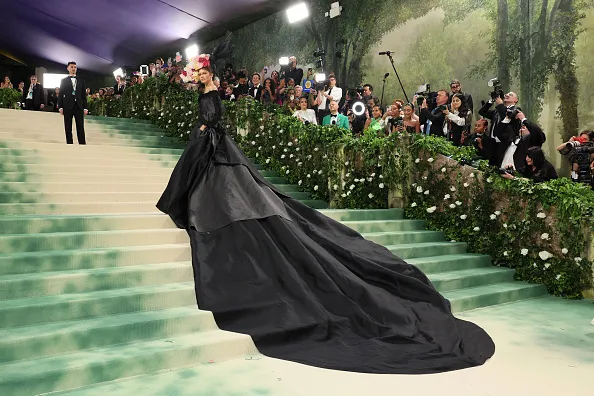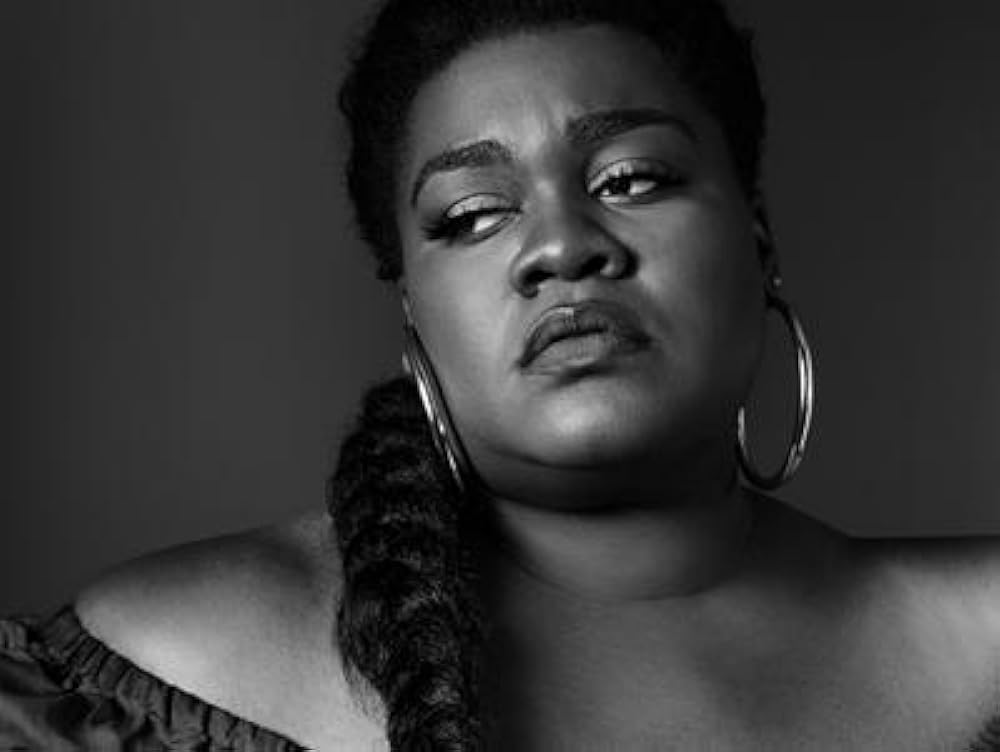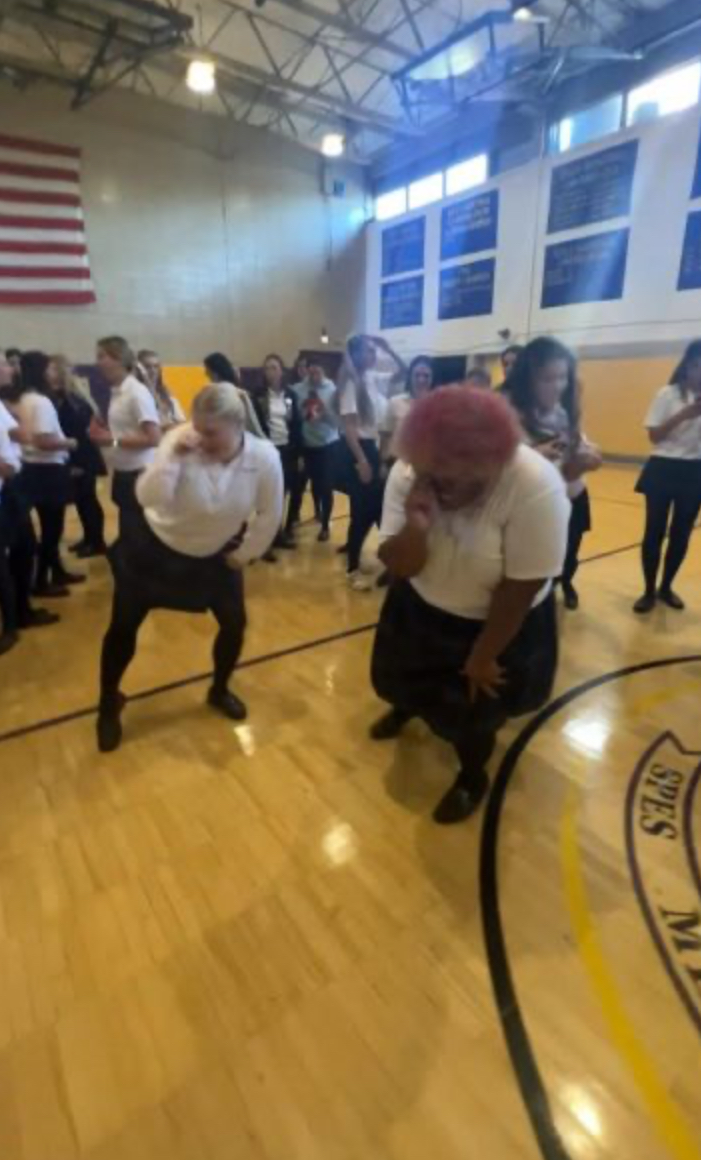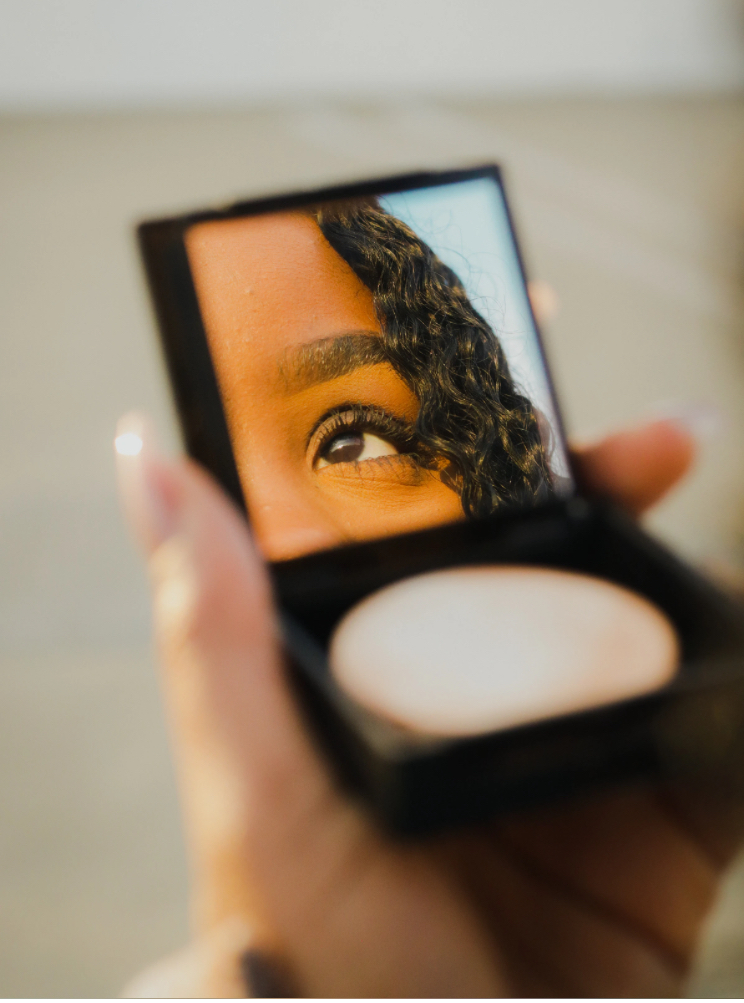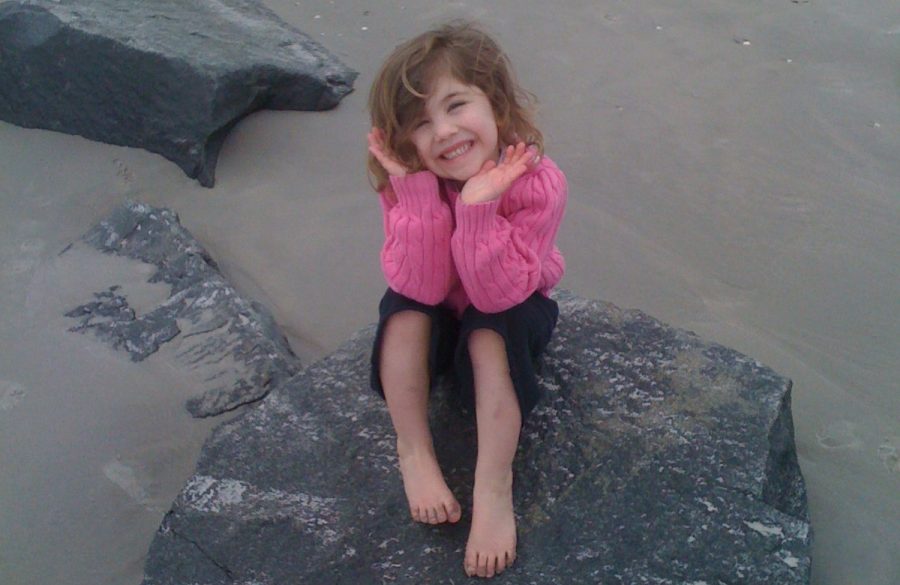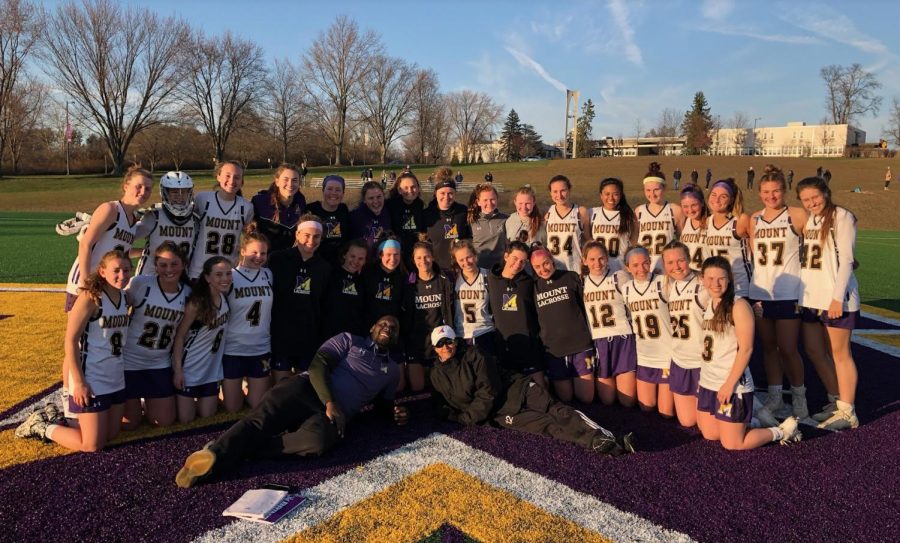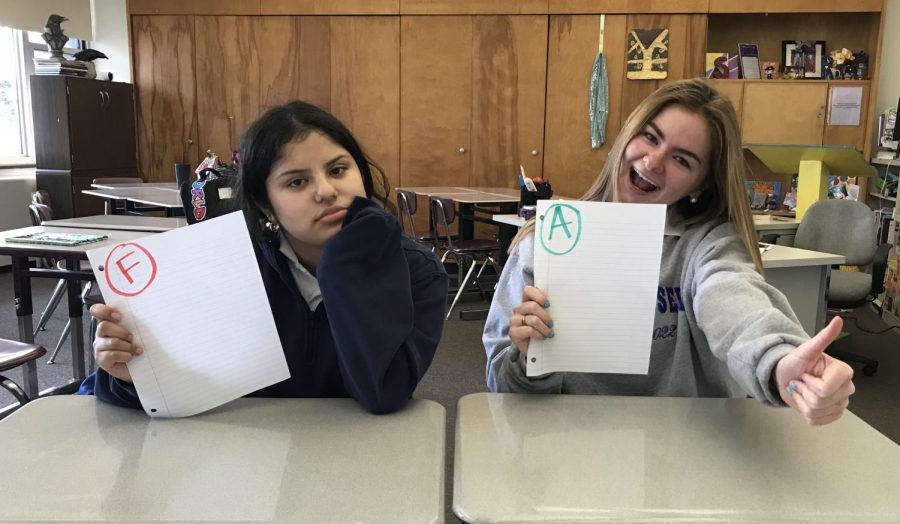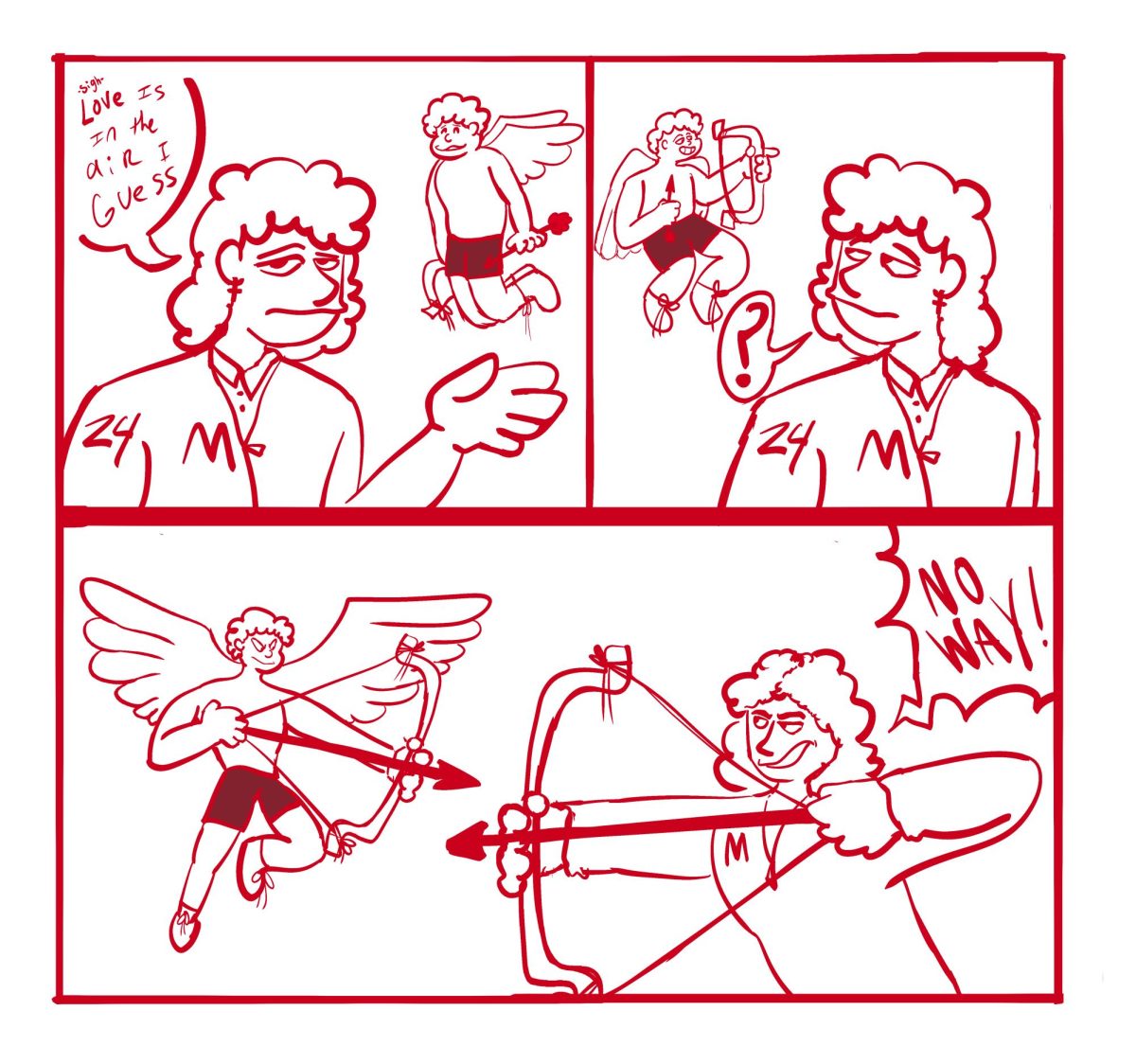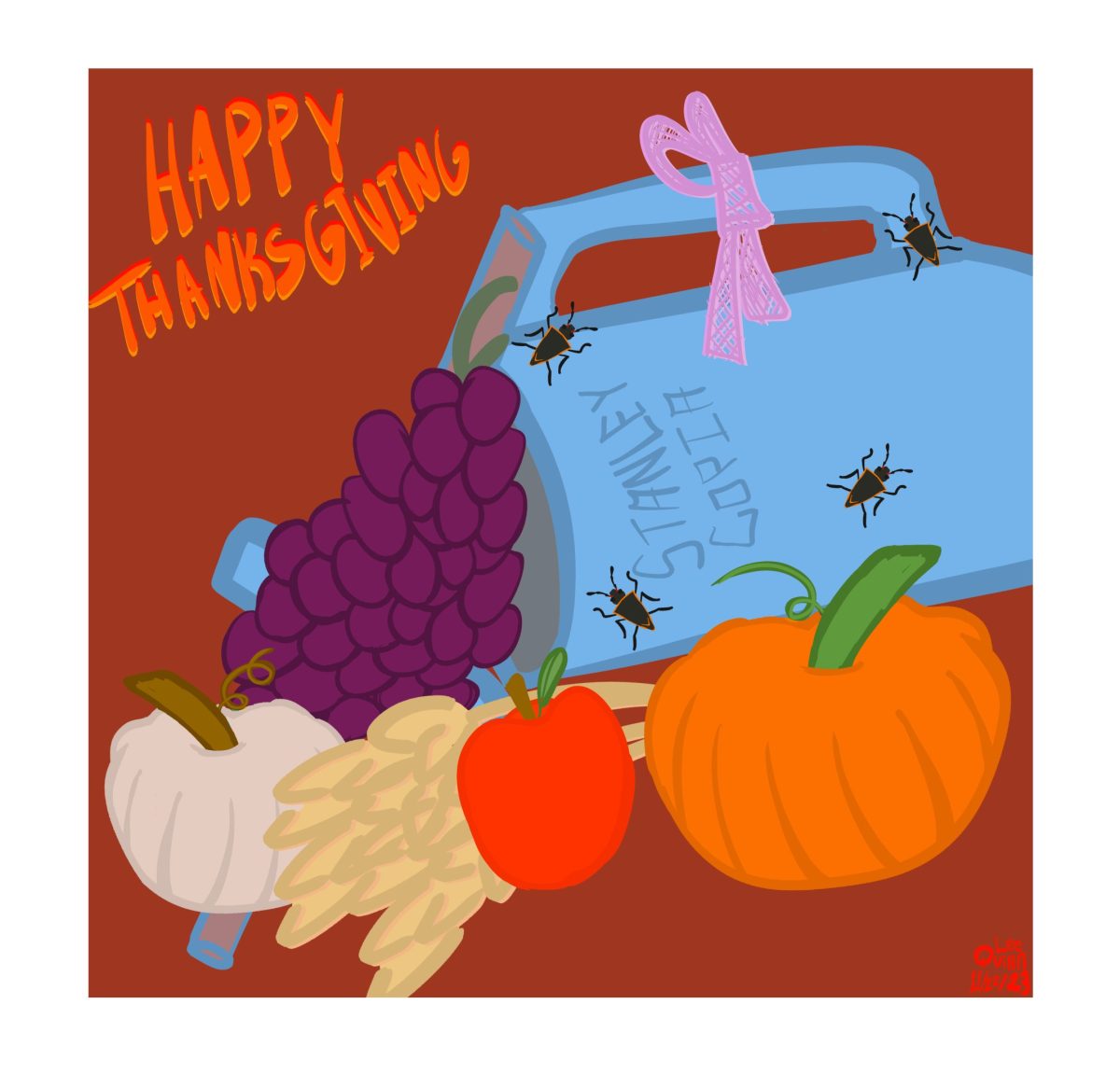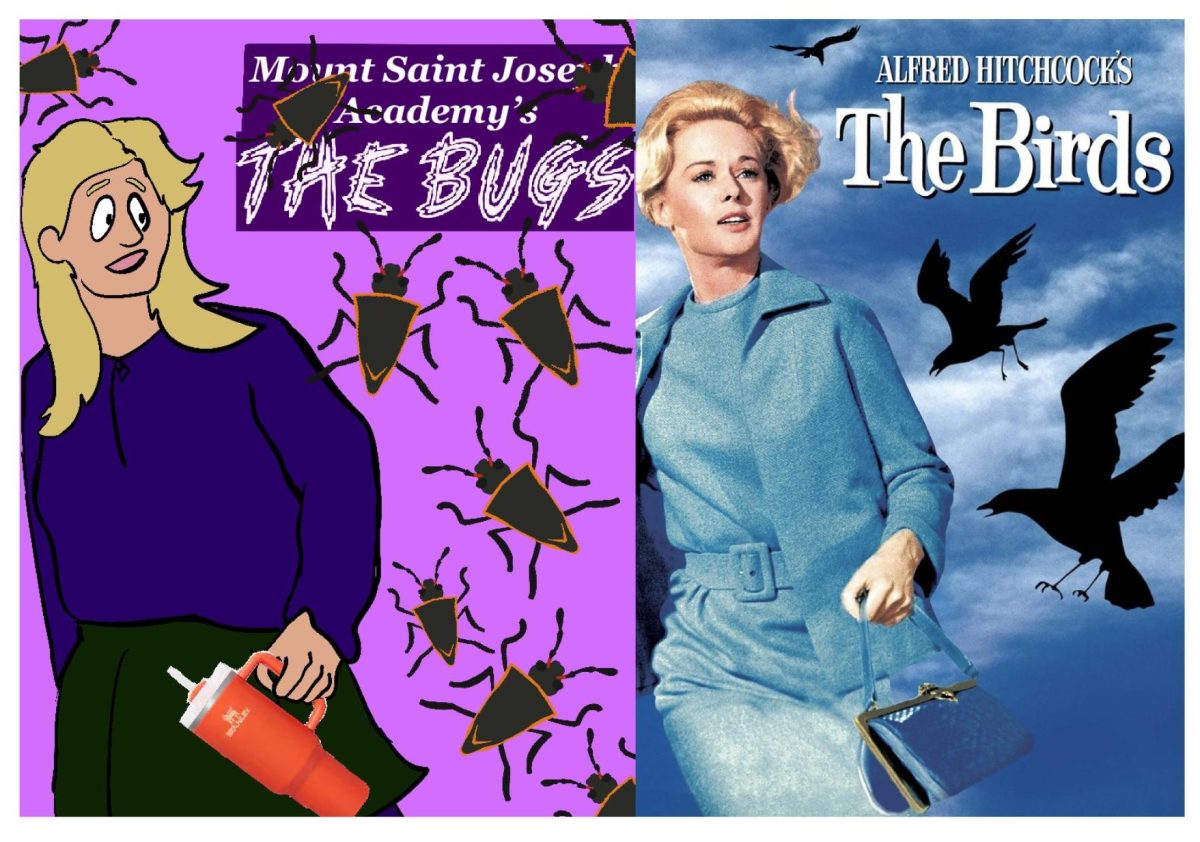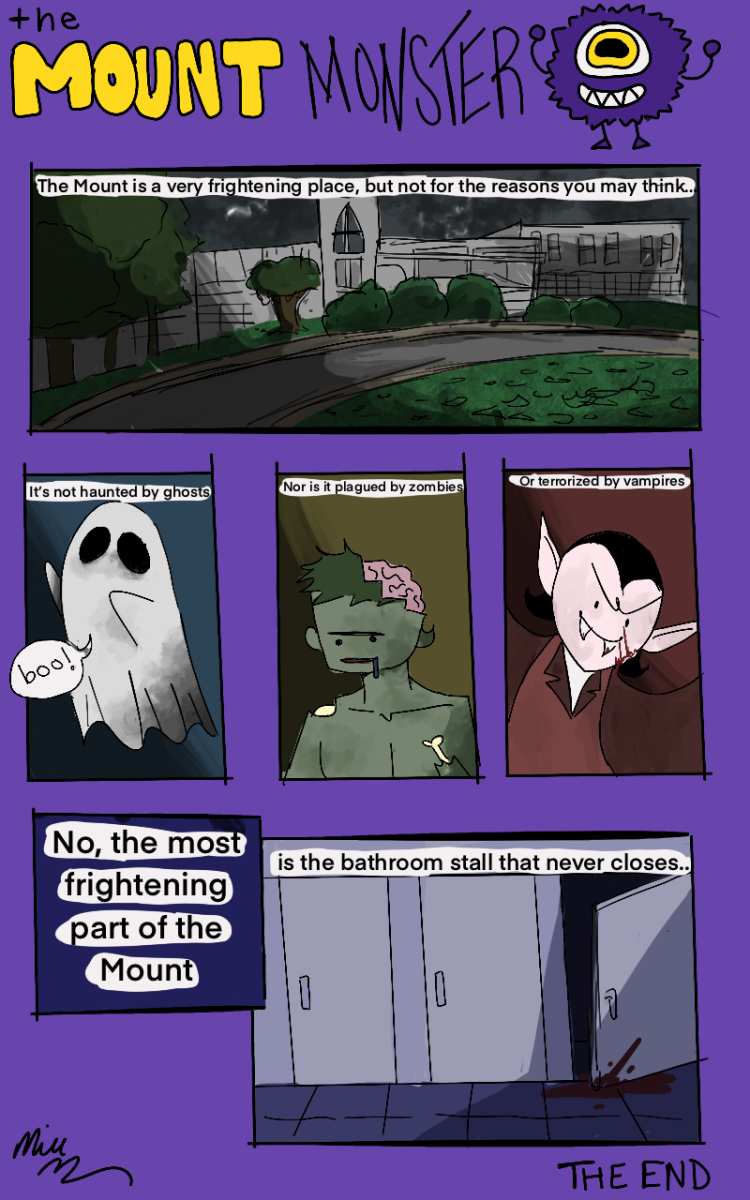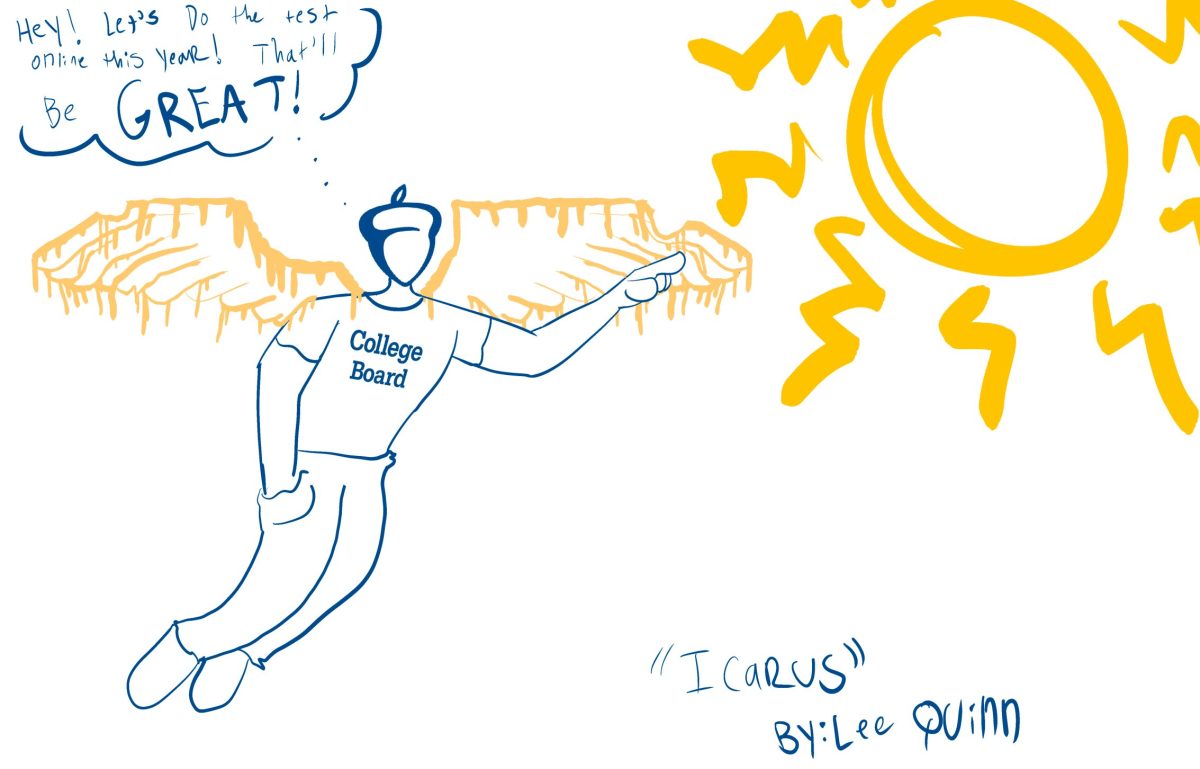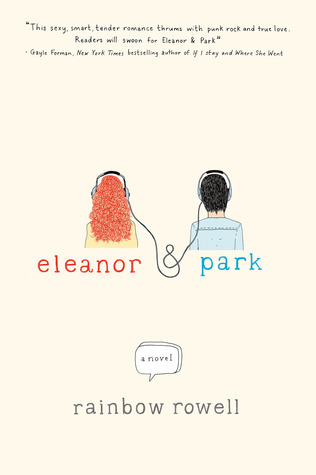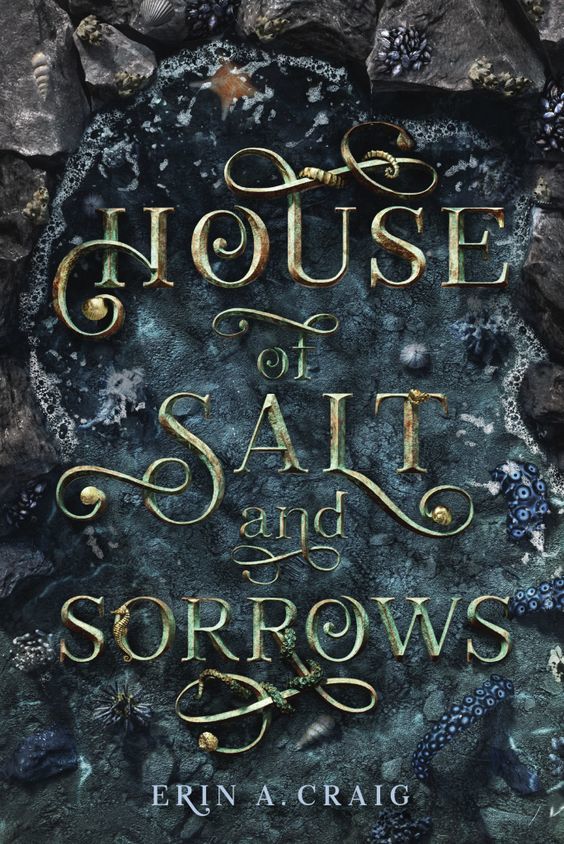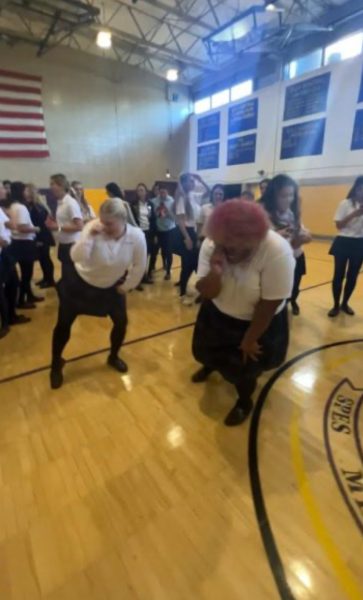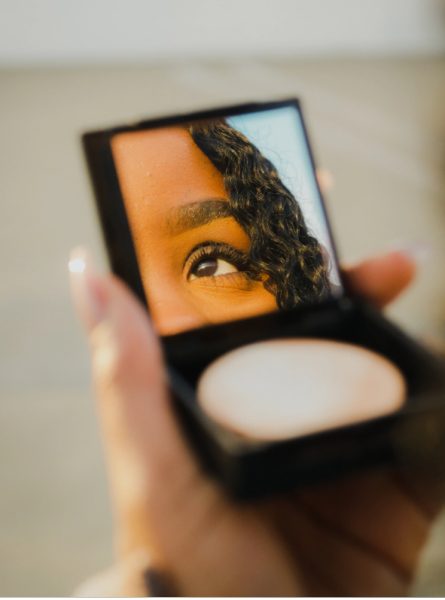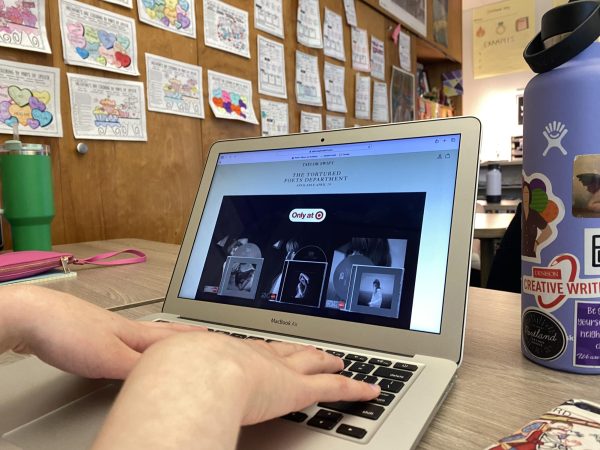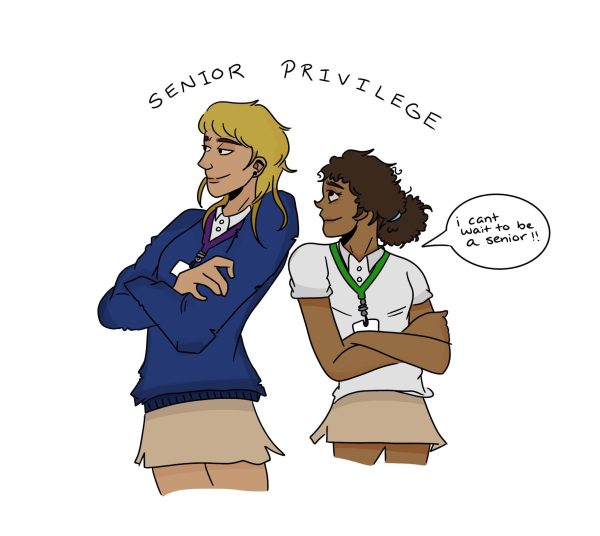My name is Sydney, not Sam
Sydney Okeke entreats her Mount sisters to consider the impact of misidentification.
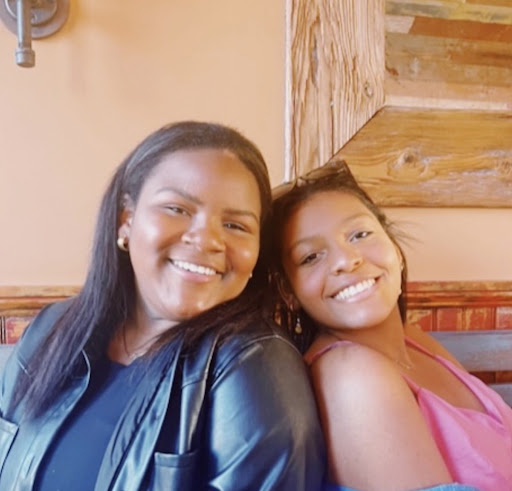
Sydney Okeke ’22 and Sam Ammons ’22 take a picture break during their lunch to cheerfully pose for a picture.
Have you seen Bravo’s reality show “Summer House?” If you have not, the premise of the show is a group of friends who go down to the Hampton’s every weekend during the summer. Normally I just watch it to get a good laugh, but the show has become more of a learning opportunity for me after the “Call Me By My Name” episode.
This season, the reality show has two cast members, Ciara Miller and Mya Allen, who recently opened up about their experiences of being misgendered as the only two Black women on the show. During the “Call Me By My Name” episode, Ciara, Mya, and their Asian-American castmate, Alex, led a discussion about race in the Hamptons during one of their house meetings. Aside from being one of the most impactful discussions of the Bravo franchise’s history, the discussion led to some real growth and understanding within the Summer House cast. Castmates were able to come together and acknowledge their previous microaggressions, and Ciara, Maya, and Alex were able to share some insight on what it is like being in the minority in the Hamptons, a place where over 90% of the population is white.
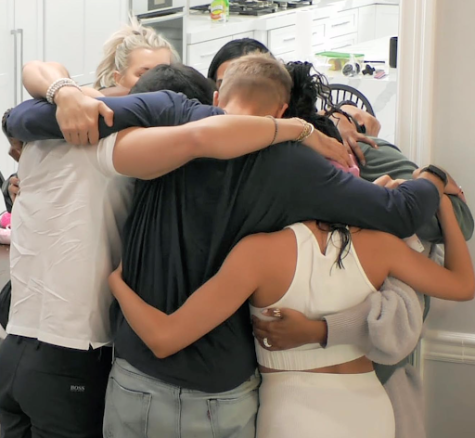
While watching that episode, I realized that I had a very similar experience to Mya, who was one of the only Black girls in her private school. I never realized that my experience being misidentified was so familiar to Black women all over the world.
My best friend, who is also a Black woman, is often mistaken for me, and I as her. “Hey Sam, oh no I mean Sydney, can you do this for me?” “Hey Sydney, I mean Sam, can you help me with this?” This has been a part of my high school experience since freshman year, and I have decided that it is time for me to speak up about it.
It is painful to have to walk around on eggshells waiting for the next time someone is going to call you the other Black girl’s name. It is painful to have to correct someone when they should know your name. It is painful that I have to explain to someone that just because I am Black does not mean that I look like the other Black girl in the class.
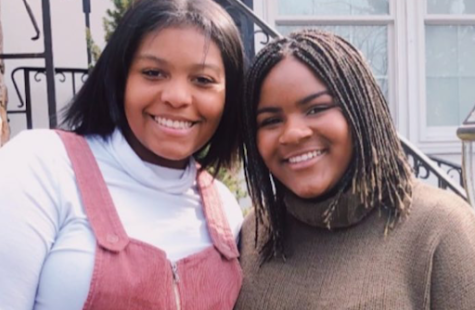
Before I used to joke about it and say how I could not count on my fingers how many times I’ve been misidentified as Sam, but now I am really starting to understand how damaging the experience has been. As Mya and Ciara mentioned in the Summer House episode, misidentifying is most times not malicious; however, it is still hurtful. For me, it takes away a sense of my identity. It feels like people are only seeing me for my skin color rather than the unique features that I have.
So how do we move on from this point? I am not asking for apologies or for you to feel guilty if you have ever misidentified me. I am asking you to make an effort to look at people for who they are, not just their skin color, to make an effort to understand why constant misidentification can be damaging to someone’s self esteem, to make an effort to be better in the future, and make an effort to educate yourself.
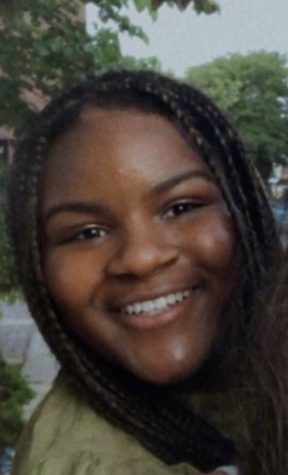
Sydney is currently a senior at Mount Saint Joseph Academy. In her third year writing for The Campanile, she is looking forward to using her writing to...

